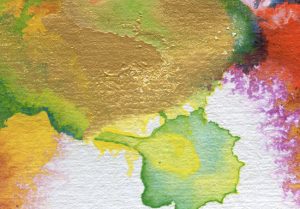
This week’s Torah portion describes a person infected with a Negah – a blemish, which might infect his skin, his clothing, or even the walls of his house. So it is immediately obvious that the “infection” the Torah is describing was a spiritual illness, not medical. A medical condition would not appear on both humans and walls, and would be treated by a medical doctor. The diagnosis of a Negah, on the other hand, was given by a Kohein, a member of the priestly class specially trained to recognize these blemishes.
What was the point of having a spiritual kind of leprosy? In G-d’s relationship with the Jewish people, how was it appropriate for them to be afflicted in this way?
The Talmud (Arachin 16a) attributes these blemishes to any one of seven causes: negative speech, murder, a false oath, forbidden sexual relations, arrogance, theft, and stinginess. G-d used these blemishes to communicate His objection to these negative activities, both to the infected individual and to those who observed his condition.
This disease did not affect everyone who committed these iniquities, and in our time this form of communication does not occur at all. The Negah is a powerful tool for change, and was therefore reserved for people and times of high spiritual caliber. We are simply not on the spiritual level to properly grow and change from having or seeing this illness.
But if the Negah no longer afflicts people, and has not for millennia, it begs the question — why are two portions of the Torah almost entirely devoted to the intricate details of how to recognize and treat a spiritual blemish that no longer exists? How is the Torah speaking to us in our generation, when so many words are devoted to a foreign affliction none of us have ever seen?
While we may not see these blemishes today, these Torah portions make one thing very clear — our actions always have real consequences. Sometimes we see those effects, but other times we don’t. We might say something to a neighbor that’s insensitive, and wishfully imagine that it didn’t really matter. However, just because they didn’t react to the comment doesn’t mean they didn’t hear it and weren’t hurt by it. They might forgive us for our insensitivity, or they might not, but the words hurt. In former times our treatment of other people might have been revealed to us and the public through a skin blemish or an ugly stain on our home. In our time the same actions can severely damage our souls, our relationships, and our homes — we just don’t always get to see it.
If these are the effects of our negative actions, Judaism teaches us that the consequences of our positive actions and spiritual achievements are many times more potent. By contrast to the Negah, these great spiritual deeds never had a physical manifestation. We do make unfortunate mistakes, but we can always replace them with positive actions to mend our relationships and correct our ways. The effects of our kind words and deeds is not always obvious, but G-d knows and He is keeping score. He is sure to reward us generously.


